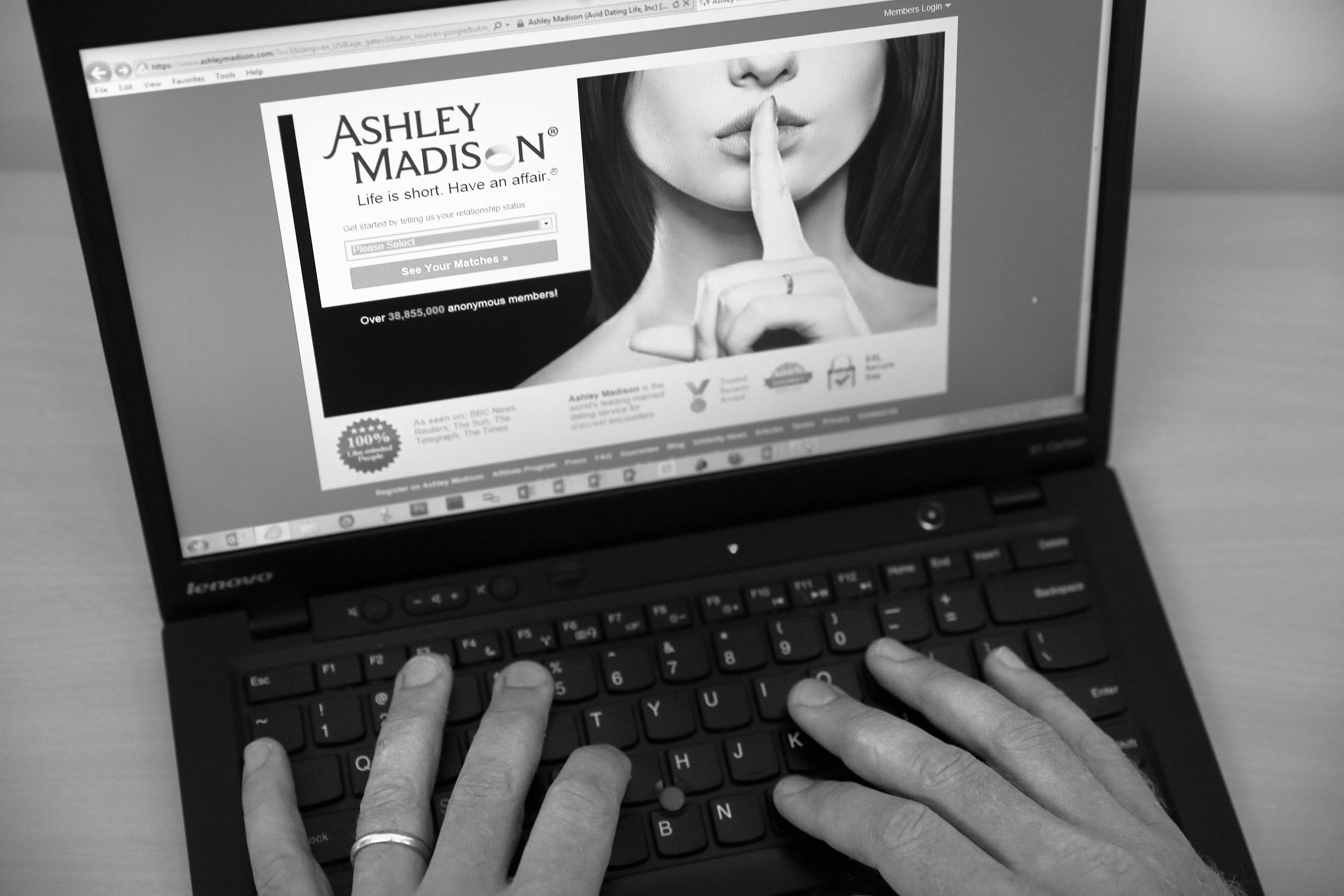The repugnance of moral scolds
Pretty much everything on the internet now consists of gleeful jeering at someone else's disgrace


A free daily email with the biggest news stories of the day – and the best features from TheWeek.com
You are now subscribed
Your newsletter sign-up was successful
America is generally supposed to have degenerated into a fat indulgent Babylon from its Puritanic origins, and yet the quaint old institution of the public pillory, and the lust for judgment and punishment, is alive and thriving on the internet. See the outing of patrons of the illicit-affair website Ashley Madison, or the campaign of hate against the dentist who mistakenly shot a lion that had a name. Even those who denounced on principle the invasion of privacy in the former case admitted they'd had a hard time repressing a throb of punitive pleasure. And pretty much everyone could feel good about joining the moral pile-on in the latter case, of a man who shot a big charismatic mammal. A shrine of hate was left at the door of his office; every effort has been made to drive the man out of business, to destroy his life. Some animal lovers, taking an Old Testament view of justice, even harassed the man's daughter. There is a certain breed of animal-rights activists who seem to extend their compassion to every species except one, a higher primate they'd just as soon see extinct.
It's admittedly pretty hard to defend big-game hunting as a hobby during a mass extinction; it's like throwing rocks through windows during a carpet bombing. I've never understood the appeal of hunting myself; I recently mourned like a Pietá when I accidentally smushed a daddy-long-legs with a can of fizzy water. The worst-case scenario in a fishing expedition, as far as I'm concerned, would be catching a fish. But this is only because I've become so effetely civilized that I've lost touch with my own humanity; we are, after all, a pack-hunting species whose nature is to exult in killing.
But hey: whatever floats your boat. I like late Fellini and Krzysztof Penderecki and drinking in the afternoons and sleeping around, and I'm secretly kind of a huge Doors fan as well, and some other people look down their noses at these things, I'm told.
The Week
Escape your echo chamber. Get the facts behind the news, plus analysis from multiple perspectives.

Sign up for The Week's Free Newsletters
From our morning news briefing to a weekly Good News Newsletter, get the best of The Week delivered directly to your inbox.
From our morning news briefing to a weekly Good News Newsletter, get the best of The Week delivered directly to your inbox.
Affairs I'd counsel against, if anyone ever asked my advice, which they don't, since they tend to turn out badly. But I decline to join in the gloating over the exposure and humiliation of some unhappy people who were starved for a little furtive lust or touch or love. Doubtless it's a character failing, but for some reason what other people do for illicit fun doesn't seem like any of my business. Somehow I've never been able to summon up much outrage over ordinary human weakness and sleazery.
These petty vices seem to me like moral misdemeanors, the sort of thing punishable by divine fine, compared to the vaster, more destructive systematic crimes that we either ignore or reward. To me, imprisonment has always seemed like one of the vilest things you can do to a fellow human being, far more sadistic than hunting, more depraved than any sexual fetish or deviation. We imprison a larger percentage of our fellow citizens in this country than our Communist arch-enemy Cuba or world-famous genocide capital Rwanda. This has only recently started to be viewed, very tentatively, as a problem.
Bill Clinton had several people executed as governor of Arkansas, at least in part, I suspect, because he knew that any serious presidential candidate in this country has to have killed a few people to demonstrate his "toughness." These executions were not an issue among anyone but bleeding-heart liberals. What got Clinton impeached, and occasioned all the histrionic conservative lament over the "death of outrage," was that he did dirty things with a lady who was not his wife.
This urge to judge and punish, to foist all your ickiness and evil off onto some poor schlub and mock him, shame him, run him out of town — or to lock him up, torture, or kill him — is ultimately more destructive, the cause of far more cruelty and suffering, than hunting or lust or drugs or any of the other usual human misbehavior, blunders, or dumb utterances that get people in so much trouble with The Public. I'm quite sure that most people who've committed atrocities have done so with a good conscience, knowing that their victims were hateful people who had it coming — who were barely even human, really. Moral indignation is the justification not only for for stonings and honor killings in dark-ages Pakistan but also for the prison state and the open season on young black men in 21st-century America.
A free daily email with the biggest news stories of the day – and the best features from TheWeek.com
I can understand this impulse; it's universal, one of the oldest and most popular of human pastimes. It's incredibly fun to hate someone's guts who deserves it, to press again and again, like a compulsive masturbator or a rat in a lab, the pleasure-center button of your own self-righteous loathing. A lot of people obviously adore being offended and outraged, casting blame and demanding apologies, at least as much as the less spiritually advanced love doing drugs or having sex. (There's more than a touch of that same pleasure in writing this essay about all the priggish little schoolmarms of the internet.) The insidious difference between moral judgment and those more ordinary vices — what makes it so much more dangerous — is that addictions at least present themselves to the afflicted as problems, whereas being judgmental feels, to those indulging in it, like a virtue.
Maybe this is just a difference of aesthetic taste. In the same way that some people are viscerally offended by hunting or adultery, there's something deeply repugnant to me about moral scolds. They're just ugly: shrill, nasty, humorless, their faces squinched up with prim, complacent hate. I remember in grade school, whenever some poor kid got in trouble, the other kids in class would raise a kind of cruel, punitive croon, with the same slow rising tone and momentum as the opening of the song "Le Freak" by Chic or the warp engines revving up on Star Trek: "Aaaaawwwwwww…." It seemed like such a traitorous, suck-uppy thing to do. Whose side were they all on, anyway? The teachers'? The principal's? What a craven pack of collaborators — enthusiastic enforcers of their own oppression.
About 94 percent of the discourse on the internet now consists of this gleeful jeering at someone else's disgrace. I may not condone the transgressor's misdeeds — they may even disgust me as much as they do everyone else — but as soon as this loathsome noise starts up, I find myself always instinctively on the side of the supposed offender. Seeing your own reactions mirrored by other people is instructively repulsive. (When you're flirting with a girl, you always feel you're being genuine and charming, but when you overhear some other guy hitting on someone, it's so transparent and sleazy it makes you cringe.)
I'm not a moral philosopher; I'm just some guy. But when I look at the shrine of hate erected at that dentist's office, or listen to the witch-trial hisses and spitting over the Ashley Madison scandal — or read those commenters who explain, with prim sanctimony, that the latest victim of a police shooting got what he deserved because he was, after all, breaking the law — all I know is, I'd rather be an adulterer than a stone-thrower.
Tim Kreider is an essayist and cartoonist. He divides his time between New York City and an Undisclosed Location on Maryland's Chesapeake Bay. His latest collection of essays is We Learn Nothing.
-
 The ‘ravenous’ demand for Cornish minerals
The ‘ravenous’ demand for Cornish mineralsUnder the Radar Growing need for critical minerals to power tech has intensified ‘appetite’ for lithium, which could be a ‘huge boon’ for local economy
-
 Why are election experts taking Trump’s midterm threats seriously?
Why are election experts taking Trump’s midterm threats seriously?IN THE SPOTLIGHT As the president muses about polling place deployments and a centralized electoral system aimed at one-party control, lawmakers are taking this administration at its word
-
 ‘Restaurateurs have become millionaires’
‘Restaurateurs have become millionaires’Instant Opinion Opinion, comment and editorials of the day
-
 'Once the best in the Middle East,' Beirut hospital pleads for fuel as it faces shutdown
'Once the best in the Middle East,' Beirut hospital pleads for fuel as it faces shutdownSpeed Read
-
 Israeli airstrikes kill senior Hamas figures
Israeli airstrikes kill senior Hamas figuresSpeed Read
-
 An anti-vax conspiracy theory is apparently making anti-maskers consider masking up, social distancing
An anti-vax conspiracy theory is apparently making anti-maskers consider masking up, social distancingSpeed Read
-
 Fighting between Israel and Hamas intensifies, with dozens dead
Fighting between Israel and Hamas intensifies, with dozens deadSpeed Read
-
 United States shares 'serious concerns' with Israel over planned evictions
United States shares 'serious concerns' with Israel over planned evictionsSpeed Read
-
 Police raid in Rio de Janeiro favela leaves at least 25 dead
Police raid in Rio de Janeiro favela leaves at least 25 deadSpeed Read
-
 Derek Chauvin's attorney files motion for new trial
Derek Chauvin's attorney files motion for new trialSpeed Read
-
 At least 20 dead after Mexico City commuter train splits in overpass collapse
At least 20 dead after Mexico City commuter train splits in overpass collapseSpeed Read
